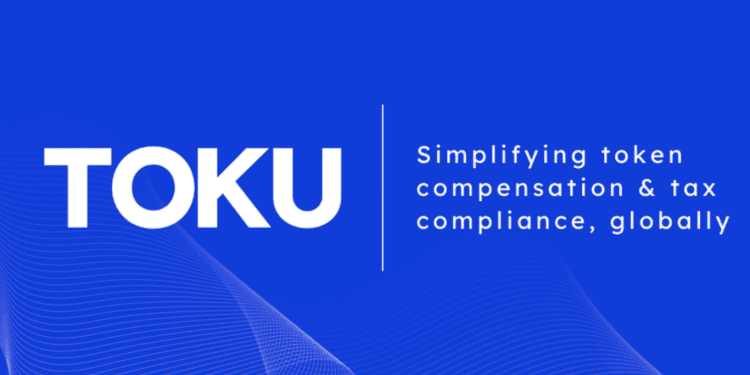- Toku, a token-based payroll and tax compliance project, raised $20 million in a funding round led by Blockchain Capital to accelerate global expansion and scale the platform.
- An increasing number of large firms pay their employees in tokens, which creates an opportunity for the specialized compliance and payroll startup Toku.
Toku, a startup specializing in token-based payroll and tax compliance, has raised $20 million in funding. The company’s unique approach is intended to help crypto businesses maintain regulatory compliance despite increased regulatory scrutiny. Toku aims to provide a much-needed helping hand to the crypto industry during these uncertain times with innovative solutions.
According to the press release, Blockchain Capital led the initial round, with participation from GMJP, OrangeDAO, Reverie, Quantstamp, Next Web Capital, angel investors like Cameron and Tyler Winklevoss, law firm Orrick, Protocol Labs founders, and infrastructure firm Alchemy.
According to the company, the investment will help Toku’s global expansion.
Former equities trader Ken O’Friel, based in Japan, cofounded Toku with veteran banker Dominika Stobiecka to assist crypto companies in complying with a slew of international tax regulations and obligations regarding crypto-based salaries.
According to Fortune, O’Friel noted that during the early-2022 bull market, most crypto companies did not prioritize compliance. But that was about to change quickly after the FTX collapse, which focused the global regulatory spotlight squarely on the crypto sector.
O’Friel also stated that compliance was not a top priority for many crypto companies during the early stages of the 2022 bull market. However, the recent failure of FTX and the resulting increase in regulatory scrutiny have pushed compliance to the forefront of the industry’s concerns. As a result, many cryptocurrency companies have made compliance a top priority.
“We realized the hardest part isn’t the tokenomics or the software, but rather how to follow the law.” Stated O’Friel
The company’s Co-founder stated that the startup had developed a system to track tax laws and regulations affecting cryptocurrency in dozens of countries. It has about 30 clients, most of whom are “law firms” and decentralized autonomous organizations (DAOs), including Filecoin foundation, Gitcoin, Aragon Astar, Protocol Labs, PleasrDAO, Teller, Safe, Hedera Hashgrapth, Storyverse, and others.
According to the report, “Toku intends to attract clients from the venture capital industry as well in the coming year.”
Meanwhile, Toku co-founder Stobiecka brings experience from her time at the Federal Reserve Bank of Chicago, the European Central Bank, the Deutsche Bank, and DAOs. She met O’Friel, in Tokyo, and Michael Carter, gaming CEO, who also serves as the Chairman of Toku’s board, joined the two of them.
To build Toku’s platform, launched in 2021, the co-founders had to review the tax laws of more than 100 countries, according to O’Friel, which resulted in a “huge legal bill” that he claims will “put the startup in a position to be the leader in the still-emerging field of token-based compensation.
Toku’s Service Offerings
Toku’s suite of services includes token-based payroll, token-based grant administration, employment and tax compliance, and WorkDAO, which the company describes as a set of employment and compensation services tailored to the needs of DAOs.
According to the press release, Christoph Simmchen, co-founder of Gnosis Safe, “we needed a partner that understands token payroll and token grant administration in different countries,” and that “Toku’s services allow each contributor to focus on their tasks while knowing their compensation is handled compliantly.”
O’Friel also stated, “There are clear laws and regulations around how people are employed and compensated that have been around for hundreds of years. These laws aren’t going away, and organizations must follow them for the industry to grow.
Our vision is to make it simple for organizations, from traditional corporations to decentralized autonomous organizations (DAOs), to compensate their employees and contractors with tokens globally.”














